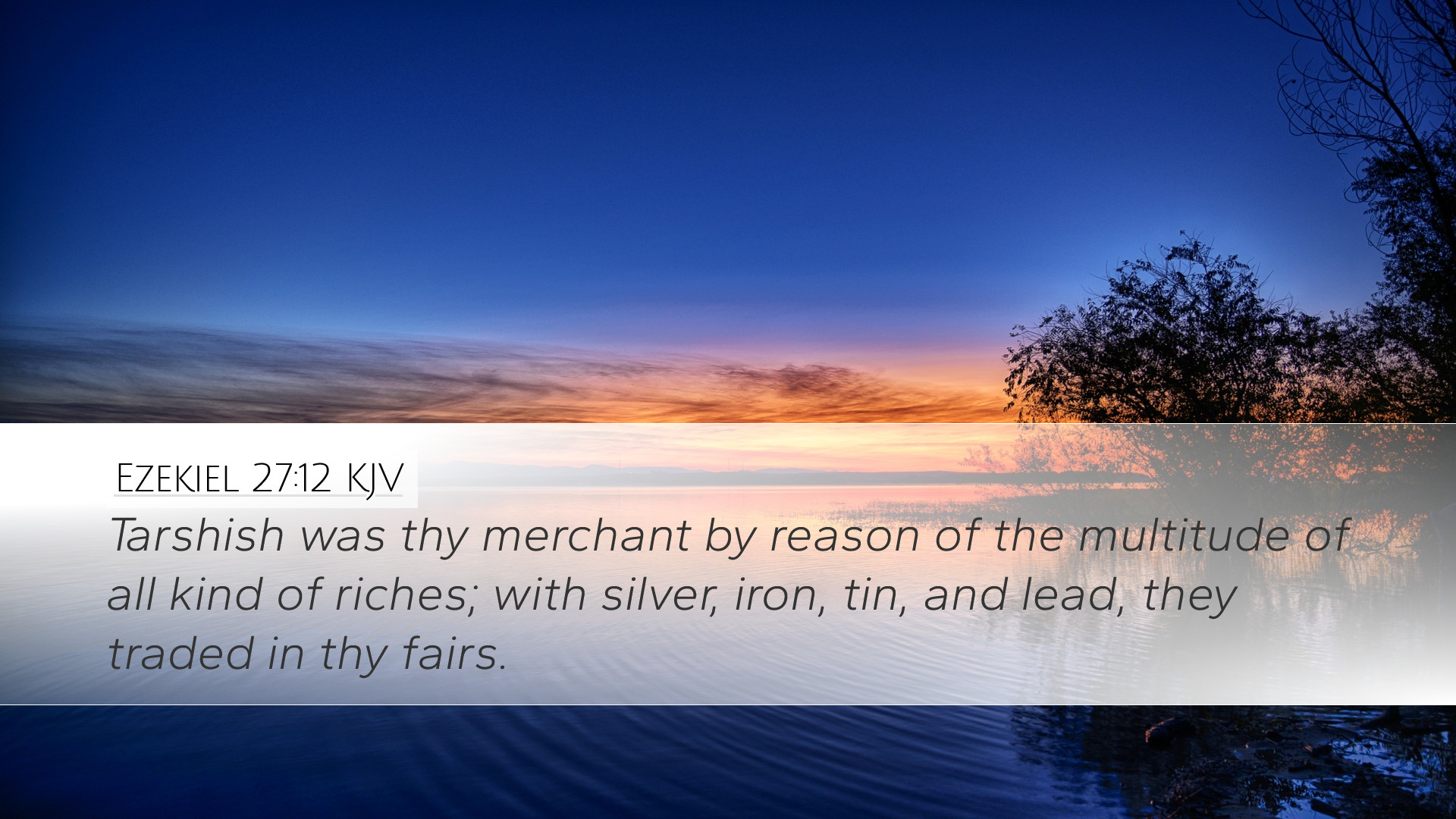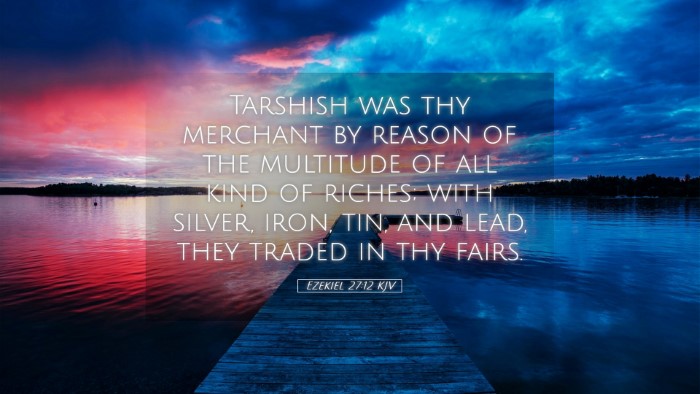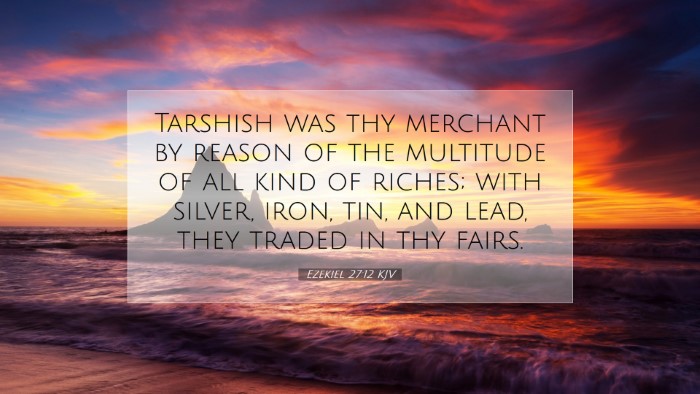Ezekiel 27:12 - Summary and Commentary
Verse: "Tarshish was thy merchant by reason of the multitude of all kind of riches; with silver, iron, tin, and lead, they traded in thy fairs."
Introduction
The verse under consideration comes from the prophetic book of Ezekiel, a text rich in
imagery and political commentary. In this passage, the prophet Ezekiel describes the
grandeur of Tyre as a trading power in the ancient world. By examining this verse through
the lenses of notable public domain commentaries, we glean insights that deepen our
understanding of economic, theological, and historical nuances within the text.
Historical Context
Ezekiel prophesied during a time of significant upheaval for the nation of Israel as well
as for surrounding nations. Tyre was a major Phoenician city-state known for its maritime
commerce. The reference to Tarshish illustrates the extent of Tyre's trading ventures,
reaching far-flung places, possibly modern Spain.
Significance of Tarshish
Tarshish is often associated with prosperity and wealth, and its mention in this verse signifies
the expansive trade routes that Tyre commanded. As Matthew Henry points out in his
commentary, "Tarshish may represent distant lands that brought wealth, emphasizing the
lucrative trading practices of Tyre." This trading relationship not only elevated Tyre’s status
but also allowed it to become a center of cultural exchange.
Economic Insights
The goods traded—silver, iron, tin, and lead—reflect not only the wealth but the range of resources available
through trade. Albert Barnes remarks, "These commodities were crucial in the ancient economy,
signifying the technological and military advancements of the nations involved." Each item
listed holds historical significance, highlighting how economies were interconnected
through maritime trade.
Symbols of Wealth and Power
- Silver: Often seen as a symbol of wealth and currency.
- Iron: Represents strength and military prowess.
- Tin: Essential for creating bronze, reflecting technological advancement.
- Lead: Employed in various industries, highlighting economic diversity.
Theological Insights
On a theological level, this verse embodies the theme of vanity in human endeavors.
Adam Clarke comments on the futility of relying on riches, asserting that “while Tyre amassed
wealth through trade, such pursuits ultimately divert attention from divine favor.” The prosperity
of Tyre serves as a metaphor for the spiritual bankruptcy that often accompanies material success.
Contrast with Divine Judgment
This context serves as a precursor to the prophecy of Tyre's eventual downfall. The
extravagance that characterized its trading practices would not escape the judgment of God.
This is aligned with the recurring biblical theme where human pride leads to divine retribution.
Matthew Henry reminds us that, “the riches of the world do not shield from
divine wrath but may indeed incur it.”
Lessons for Today
In studying Ezekiel 27:12, pastors, students, and theologians are beckoned to contemplate
not only the historical and economic facets of the text but also the moral implications it carries.
The narrative invites reflection on contemporary societal values concerning wealth and trade:
Are we, like Tyre, succumbing to the deceit of riches?
Reining in Material Pursuits
The relationship between Tyre and Tarshish serves as a dual reminder of the benefits and the
potential moral peril that comes from a focus on accumulation. The Christian journey often
involves reconciling the need for material goods with the desire to serve God and foster community.
Albert Barnes encourages believers to “seek first the Kingdom of God and His righteousness,”
reiterating that true wealth lies not in commodities but in spiritual fulfillment and divine purpose.
Conclusion
Ezekiel 27:12 encapsulates both a historical snapshot of Tyre's mercantile power and a
prophetic warning regarding the hazards of materialism. Through insights gained from the
commentaries of Henry, Barnes, and Clarke, we understand the dangers inherent in prioritizing
earthly wealth over spiritual devotion. Thus, this passage serves as a pivotal point for
in-depth theological reflection, inviting faithful living that prioritizes eternal over temporal values.


